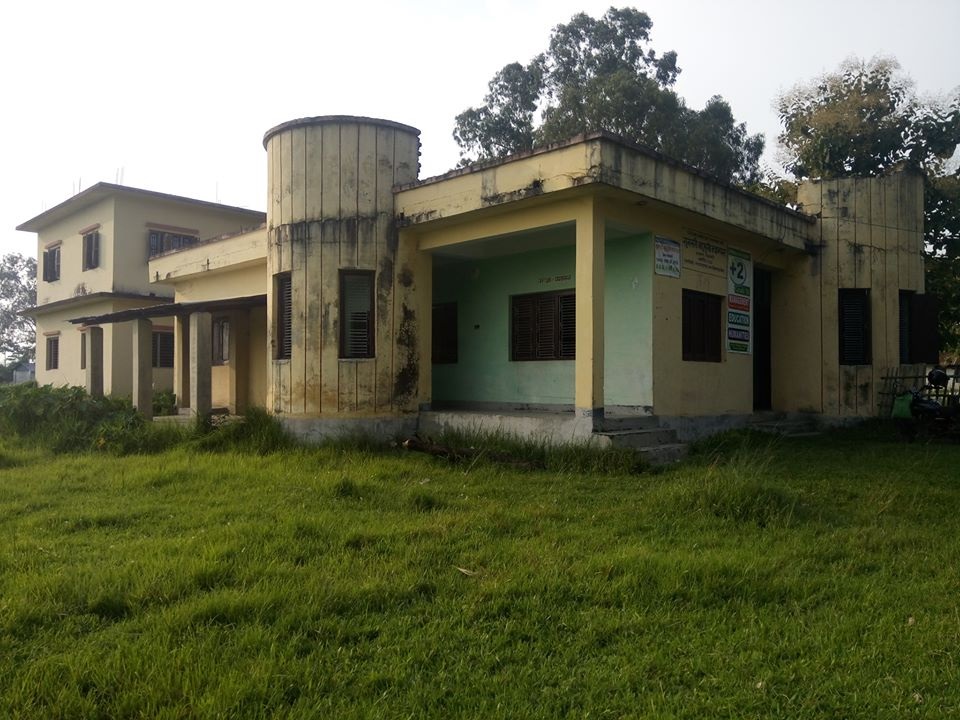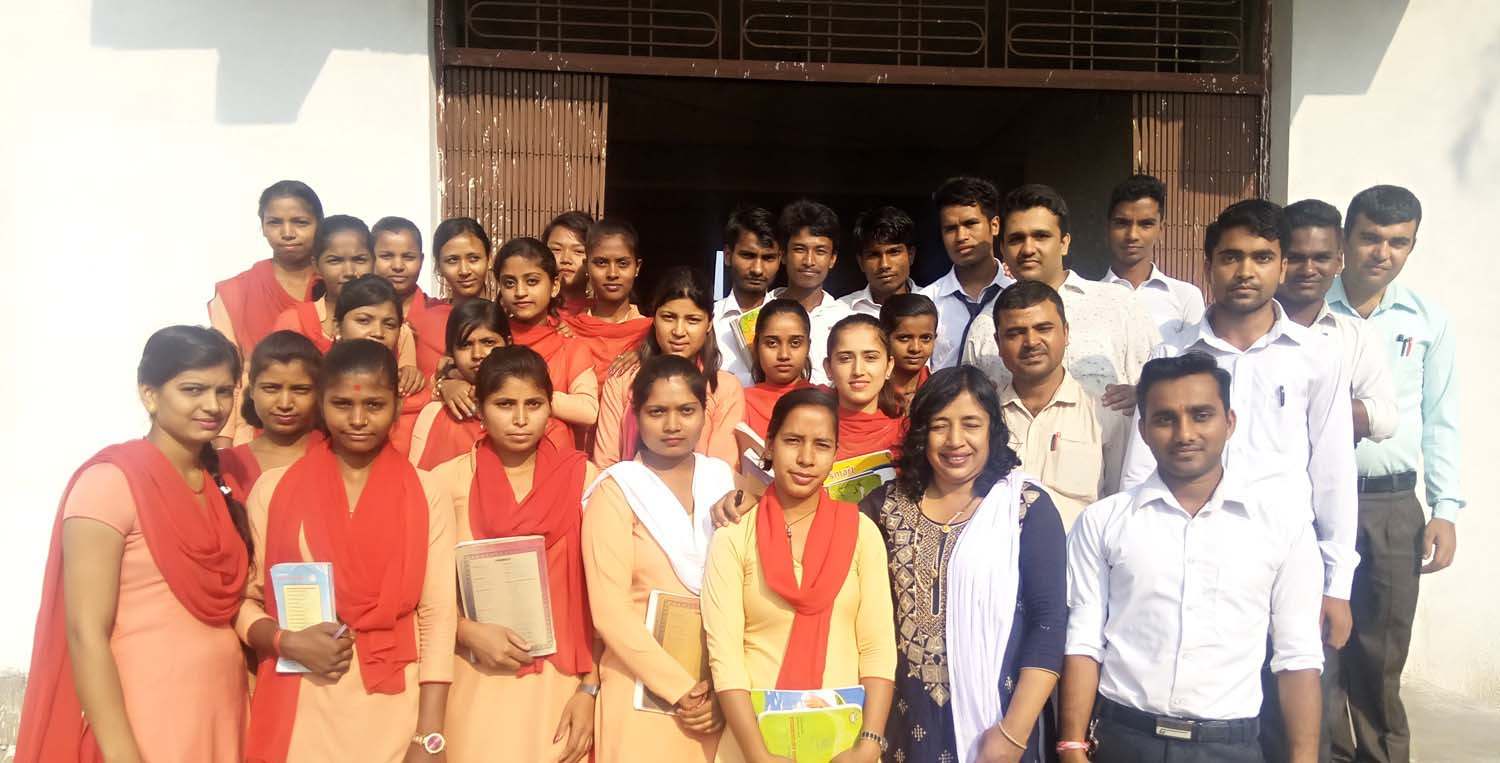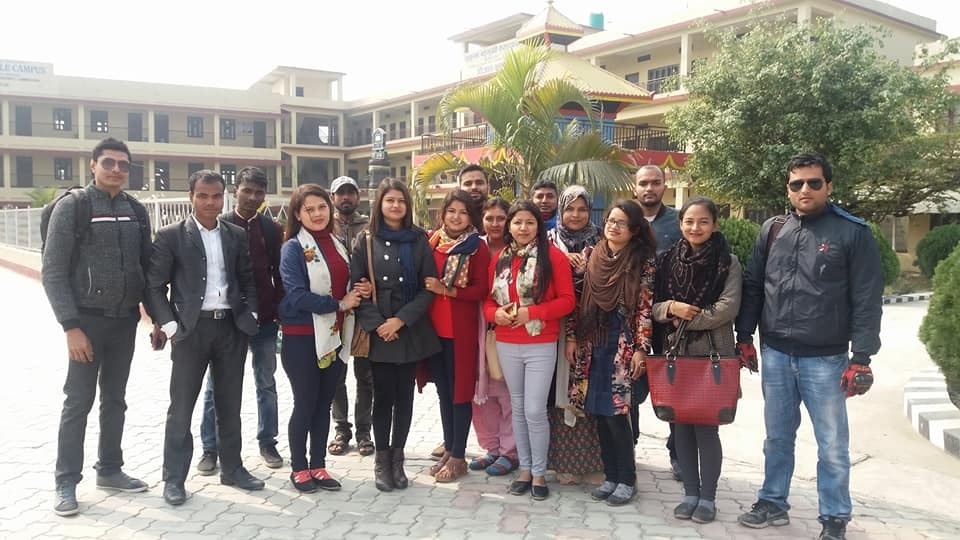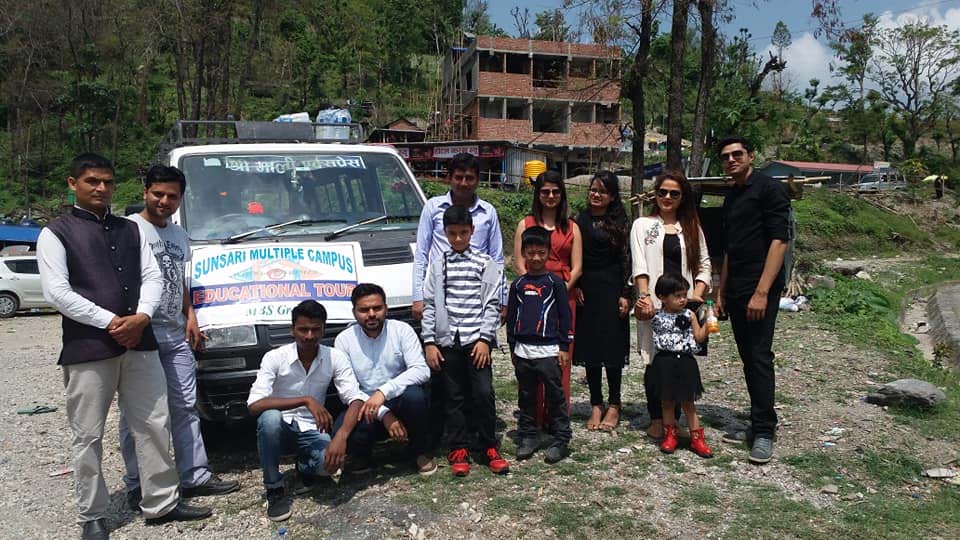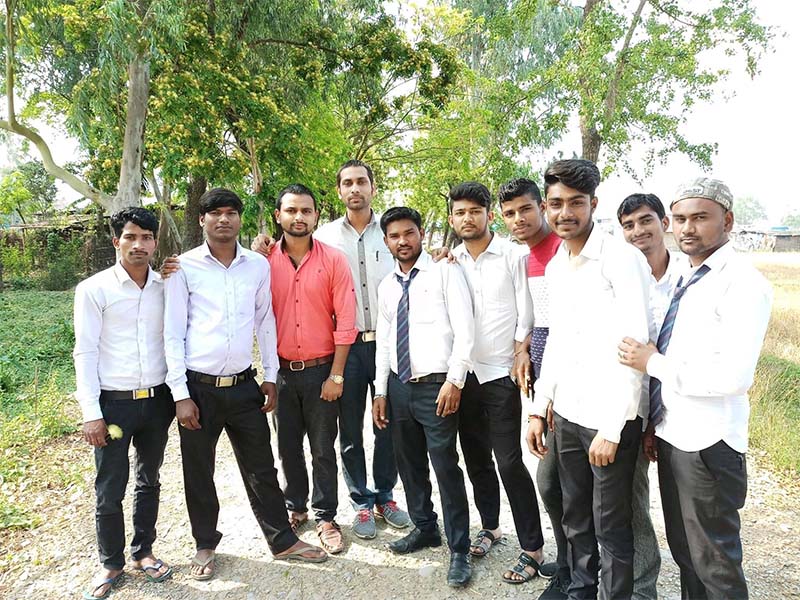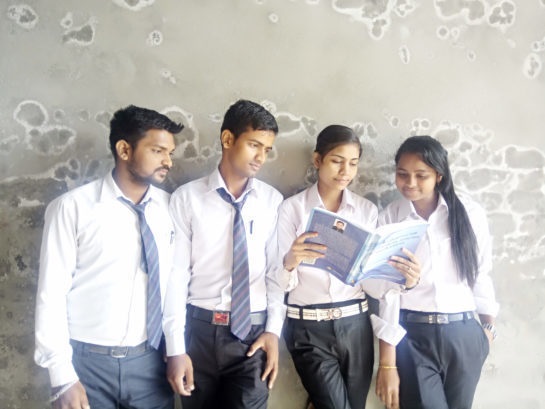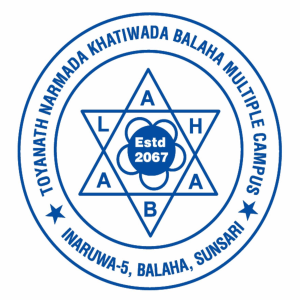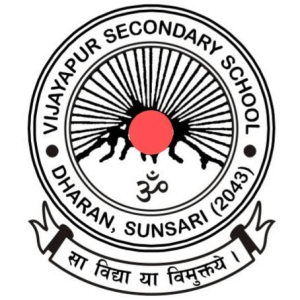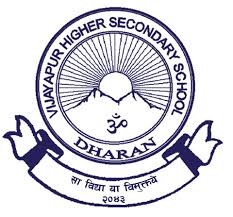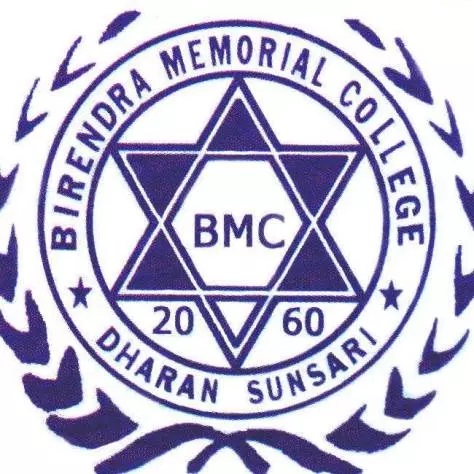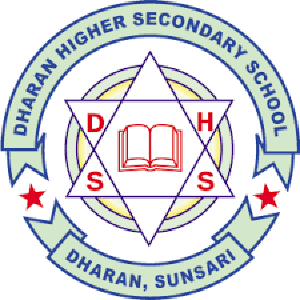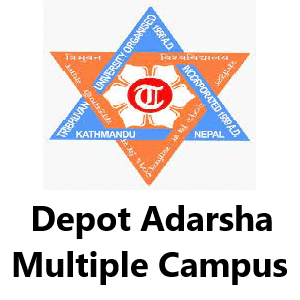Overview
Sunsari Multiple Campus (SMC) is a community-owned institution in Inaruwa Municipality–4, Sunsari, Koshi Province, Nepal. Established in 2037 BS (1980/81 AD), it is affiliated with Tribhuvan University (TU) and recognized by the University Grants Commission (UGC) Nepal.
The campus runs +2 programs and higher education in Management, Education, and Humanities, including BBS, BITM, BA, B.Ed., MBS, and M.Ed.
Overview
SMC began with local initiative to expand access to university-level study in Inaruwa. Early classes were conducted at Shree Bhagwati Secondary School before the campus developed its own land and buildings. Community leaders and educationists, including support from parliamentarian Shyam Prasad Gupta during the founding phase, helped turn the plan into a functioning campus.
The campus now delivers programs from +2 to master’s level under TU. A five-year strategic plan (2017 AD) guides improvement in teaching–learning, infrastructure, resource mobilization, and quality assurance. Master’s programs expanded the academic scope: MBS started in 2071 BS and M.Ed. in 2076 BS.
Quick Highlights
-
Type: Community campus
-
Location: Inaruwa Municipality–4, Sunsari, Koshi Province, Nepal
-
Establishment: 2037 BS (1980/81 AD)
-
Affiliation: Tribhuvan University (TU)
-
Recognition: University Grants Commission (UGC) Nepal
-
Programs: +2 (Management, Humanities, Education); Bachelor (BBS, BITM, BA, B.Ed.); Master (MBS, M.Ed.)
-
Systems: Annual and semester as per TU rules
-
Master’s Launch: MBS in 2071 BS; M.Ed. in 2076 BS
-
Plan: Five-year institutional plan initiated in 2017 AD
-
Scholarships: Need- and quota-based support for deserving and economically disadvantaged students
-
Governance: Community-led with stakeholder participation
Academic Programs Offered
+2 Programs (NEB)
-
Streams: Management, Humanities, Education
-
Focus: Foundational study with subject combinations aligned to each stream
-
Outcome: Preparation for bachelor-level entry in business, social sciences, teaching, and related fields
Bachelor’s Programs (TU)
Bachelor of Business Studies (BBS)
Four-year program under the Faculty of Management. Core study areas include accounting, finance, marketing, and management. Teaching includes lectures, assignments, internal assessments, and exams based on TU curricula.
Bachelor of Information Technology Management (BITM)
Undergraduate study combining information Technology systems and management. Coursework typically includes database fundamentals, programming basics, systems analysis, and organizational processes set by TU. Graduates can move into entry-level roles in IT-enabled services and administrative functions.
Bachelor of Arts (BA)
Humanities and social science study with subject options set by TU and campus offerings. Graduates often enter social sector roles, communication fields, or pursue further study.
Bachelor of Education (B.Ed.)
Four-year program with general education courses and a subject specialization. Key areas include educational psychology, curriculum and evaluation, classroom practice, and community engagement. Graduates are prepared for school-level teaching and further study in education.
Master’s Programs (TU)
Master of Business Studies (MBS)
Two-year (four-semester) program under the Faculty of Management. Core courses cover marketing management, managerial economics, organizational behavior, research methodology, strategic management, and specialization options in finance, marketing, accountancy, or management as per TU structure.
Master of Education (M.Ed.)
Two-year program on a semester system totaling 66 credit hours across core courses, specialization, electives, teaching practice, and thesis. Typical core areas include foundations of education, advanced educational psychology, curriculum practices, research methodology, and measurement and evaluation.
Admission Process
Steps
-
Choose the program level (+2, Bachelor, Master).
-
Collect and submit the application form within the announced timeline.
-
Sit for entrance tests where required:
-
MBS: Central Management Admission Test (CMAT) by TU Faculty of Management
-
M.Ed.: Entrance examination by TU Faculty of Education
-
-
Check the merit list and seat availability published after the entrance results.
-
Complete enrollment, fee payment, and document verification.
Eligibility
-
+2: SEE or equivalent as per NEB rules for the chosen stream.
-
BBS/BITM/BA/B.Ed.: 10+2 or equivalent from a recognized board, meeting TU and faculty-specific requirements.
-
MBS: Bachelor degree from TU or a recognized university; CMAT and merit as per Faculty of Management.
-
M.Ed.: Bachelor in Education or relevant qualification recognized by TU; entrance pass and merit as per Faculty of Education.
Required Documents (as notified)
-
SEE mark sheet and character certificate
-
+2 transcript, provisional, and character certificate
-
Bachelor or prior degree certificates (for master’s entry)
-
Citizenship copy
-
Transfer certificate (if applicable)
-
Recent passport-size photographs
-
Completed application form and fee receipt
Teaching Faculty and Learning Methodology
SMC engages qualified faculty across Education, Management, and Humanities. Teaching uses lectures, guided discussions, assignments, internal assessments, and semester or annual exams according to TU rules.
Education programs include supervised school practice and classroom observation. Master’s study includes research proposals, field study where required, and thesis writing under academic supervision.
Regular workshops, seminars, and academic interactions support both faculty and students. The institutional plan encourages professional development, student support, and reflective classroom practice.
Infrastructure and Learning Facilities
The campus moved from shared premises to its own land and buildings, enabling stable delivery of classes and exams. Facilities include classrooms and administrative spaces with routine maintenance. Internal assessments and examinations follow the academic calendar with supervision and review.
A management information system supports record-keeping, notices, and routine operations. Resource expansion targets learning spaces and support services that match program needs.
Student Life and Campus Experience
SMC maintains close ties with parents, alumni, and local stakeholders. Students study in an environment that values regular attendance, timely assessments, and discipline. Faculty guidance and peer learning help new entrants adjust to degree-level expectations. Coursework and community-linked activities, where arranged, encourage students to connect learning with local needs.
Extracurricular Activities (ECA)
Academic interactions such as seminars, workshops, and subject-specific events run during the year. Where available, student groups support reading circles, quiz events, and community tasks. These activities help students strengthen communication, teamwork, and civic participation.
Scholarships and Financial Support
Scholarships are available for deserving and economically disadvantaged students under defined criteria and quotas. Support may be based on merit, need, or special categories guided by national and institutional frameworks. Applicants should check current notices for eligibility, forms, deadlines, and required documents.
Achievements and Institutional Milestones
-
Founding in 2037 BS through community effort to widen access to higher education in Sunsari
-
Shift from borrowed facilities to campus-owned land and buildings
-
Launch of MBS in 2071 BS and M.Ed. in 2076 BS
-
Five-year plan (2017 AD) for teaching–learning, infrastructure, resource mobilization, and governance
-
Graduates contributing to local schools, municipalities, NGOs/INGOs, and private organizations
Why Choose This Institution?
-
Community-based governance with stakeholder oversight
-
TU-affiliated degrees recognized across Nepal
-
Pathways from +2 to master’s level in Management, Education, and Humanities
-
Structured delivery aligned with TU curricula and calendars
-
Education programs with teaching practice and observation
-
Master’s programs with research and thesis components
-
Scholarships for deserving and economically disadvantaged students
-
Regional access for students from Sunsari and nearby districts
Teaching Faculty and Learning Methodology (Program Notes)
-
Undergraduate: Fundamentals, applied assignments, internal evaluations, and university exams
-
B.Ed. and M.Ed.: Classroom management, psychology, curriculum, assessment, research methods, and supervised practice
-
MBS: Core management subjects plus specialization choices in finance, marketing, accountancy, or management following TU offerings
-
Research Support: Guidance on proposals, referencing, data collection, and thesis submission under TU norms
Governance, Quality, and Institutional Priorities
Campus planning centers on teaching quality, infrastructure, communication, and accountability. Ongoing measures include:
-
Regular seminars, workshops, and consultations
-
Management information system for academic and administrative work
-
Self-assessment practices for transparency
-
Faculty and staff training and study opportunities
-
Systematic internal examinations and review meetings
-
Resource mobilization through coordination with local bodies and national agencies
Community Role and Collaboration
SMC values collaboration with parents, alumni, local government, and civic groups. Coordination with municipal bodies and organizations supports scholarships, small upgrades, and program relevance. Alumni and local professionals contribute to talks and guidance sessions that connect coursework with workplace expectations.
Career Pathways and Further Study
-
Education graduates: School teaching, education officer roles, curriculum support, training assistance, and progression to M.Ed.
-
Management graduates: Entry-level roles in banks, cooperatives, trading firms, and NGOs/INGOs; specialization supports accounting, finance, marketing, and HR roles
-
Humanities graduates: Social sector work, communication fields, local governance support, and further study
-
Master’s graduates: Advanced roles in schools, colleges (as per rules), development organizations, and public administration; research and academic pathways remain open
How to Stay Informed
Prospective applicants can follow campus notices for admission windows, entrance schedules, fee information, scholarship announcements, and documentation requirements. Updates are posted through campus channels and notice boards. For program-specific questions, contact the administration office during working hours.
Conclusion
Sunsari Multiple Campus is a community campus in Inaruwa offering +2 to master’s study under Tribhuvan University. With UGC recognition, steady program growth, and a clear plan for improvement, the campus offers a practical route into higher education in Management, Education, and Humanities. Scholarships, structured processes, and collaboration with local stakeholders reflect a commitment to accessible and accountable learning in Koshi Province.
Contact Details
Sunsari Multiple Campus
Email Address: sunsarimultiple2037@gmail.com
Phone Number: +977-25-560009
Website: https://smcampus.edu.np
Location: Inaruwa Municipality, Ward No-4, Sunsari, Nepal


